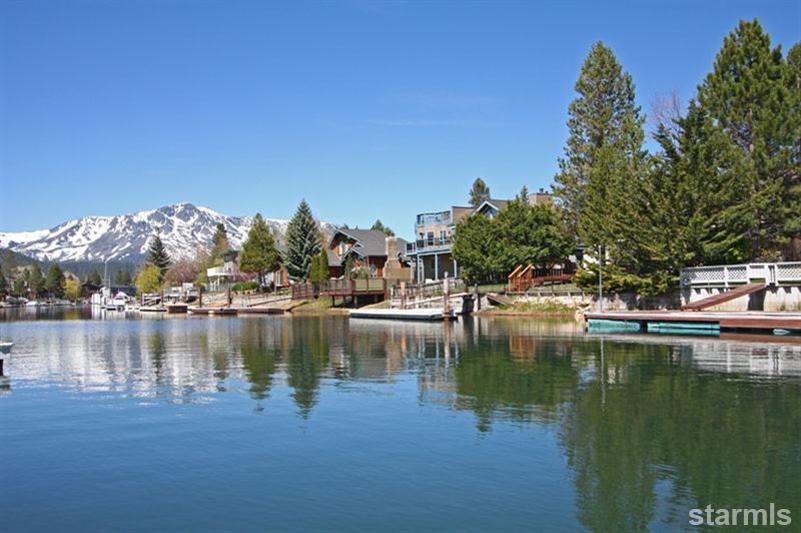Purchasing a bank owned foreclosure is a lot different than purchasing a home from a homeowner. Fannie Mae has put together a list of general questions and answers that will help buyers to understand the main difference between the two transactions.
Q. How is buying a home owned or
managed by Fannie Mae different?
A Usually, when you buy a home, you deal with a
seller who lives in the home. However, Fannie
Mae and other corporate sellers have not
occupied the homes they are selling. They are
transitional owners only, having acquired these
properties through foreclosure, or deed in lieu
of foreclosure, or forfeiture.
When buying a corporate-owned home, it is
important to know the condition of the
property, the cost of any needed repairs, and
steps in the loan qualification and closing
processes before you enter into a purchase and
sales agreement.
Q Has Fannie Mae fixed everything in
the house?
A Probably not. Even if the house has fresh paint,
brand new carpet, perhaps even a new roof or
siding, that doesn’t mean everything in the
house is new – or even works.
Fannie Mae sometimes makes repairs to
properties to increase their marketability.
Additionally, there may be certain safety
conditions that require repairs. But Fannie Mae
sells each property in an “as is” condition. This
means that you, as the buyer, accept the
property in its condition at the close of escrow.
Fannie Mae is not responsible for fixing any
problems after the close of escrow.
Fannie Mae does not warrant or guarantee any
work that may have been done on the property –
whether made as part of its efforts to sell the
home or pursuant to conditions in the purchase
contract. You may wish to buy a home warranty
at your own expense.
You should certainly hire a qualified professional
to inspect the condition of the property whether
it has been repaired or not. Hiring a home
inspector is a good practice, no matter what
type of home you buy.
Q What can you tell me about this house?
A Sellers of properties acquired through
foreclosure, deed in lieu of foreclosure, or
forfeiture are exempt from completing a transfer
disclosure statement. That’s because these sellers
never lived in the house, and don’t necessarily
know of any hazards present. However, if Fannie
Mae has knowledge of any hazards on properties
we own or market, we disclose this information
through our listing agents. Again, we encourage
you to make your own home inspection of the
property before you buy.
Q What type of sales contract does
Fannie Mae use?
A Usually, when you buy a California home, you
write an offer to purchase. Then, once your offer
is accepted, you open escrow through a second
set of documents called escrow documents.
In order to increase the efficiency of the sales
process, Fannie Mae uses a combined real estate
purchase contract/escrow instructions
document for California properties. If there is
anything in the document you don’t understand,
or aren’t comfortable with, you may want to
contact a real estate attorney, the real estate sales
professional who has listed the property, or any
real estate professional of your choice to review
these documents with you.
Q Do I have to use Fannie Mae’s selected
title and escrow companies?
A No. The use of Fannie Mae selected title and
escrow companies is not required. You, as a
buyer, may designate use of the title or escrow
company of your choice, subject to the terms
of the contract.
Q Will Fannie Mae accept an offer
contingent on the sale of my house?
A No. Fannie Mae will not accept offers contingent
on the sale of your current home. Other types of
contingencies will be considered on a case-bycase
basis.
Q Why does Fannie Mae require a lender’s
prequalification statement before
negotiating a home purchase offer?
A Fannie Mae wants to be sure that you, as a
prospective buyer, will be able to complete the
sales transaction, including obtaining financing
when needed. Prequalification allows you to see
how much house you can afford, and how much
of a mortgage you may be able to qualif y for,
before you actually make an offer on a home.
That also helps you focus on homes in a price
range you can afford.
What’s involved when you, and your copurchaser
if there is one, get prequalified?
First, the lender will verify if you have sufficient
funds for the down payment and closing costs by
checking your bank statements. Second, the
lender will judge your ability to make house
payments by reviewing your credit report. And
third, the lender will verify your income through
your most recent pay stubs.
Remember, a loan prequalification doesn’t mean
your loan is approved. You must apply for a loan
separately, after you are prequalified and your
offer to buy the home is accepted.
Fannie Mae may require that a Fannie Maeapproved
lender provide your prequalification
statement. However, you may apply for and
obtain your mortgage from any lender –
it need not be the lender who provided your
prequalification statement.
Q Does Fannie Mae provide special
financing on its houses?
A Sometimes. REO (Real Estate Owned) financing
may be available on certain Fannie Mae-owned
properties through lenders designated by
Fannie Mae. The listing agent is able to
provide information regarding the availability
of financing on any particular property.
Q Can I buy a house directly from
Fannie Mae without going through
real estate agents?
A No. Fannie Mae depends on the expertise of local
real estate sales professionals and accepts offers
only through our real estate listing agents. You
may work with any real estate sales professional
you like to submit an offer to the real estate
agent who has listed the property.
Q What happens if Fannie Mae gets more
than one offer?
A Each interested party may be requested to
submit their “best” offer in writing through
the listing agent no later than a certain specified
date and time. Fannie Mae may accept or provide
a counteroffer to the offer that Fannie Mae
determines to be in its best interest. Fannie Mae
is not obligated to accept any offer submitted.
Q How can I learn more about California
properties for sale?
A Fannie Mae-owned and managed homes are listed
in the local South Lake Tahoe MLS, if
available, and are accessible to any real estate
broker. In addition, you can find the list of
properties for sale on Fannie Mae’s web site at
www. fanniemae.com. There, you can search for
Fannie Mae-owned and managed properties by
city, state, and price range. The web site lets you
view the properties available – in California and
nationwide. Information includes street
addresses and contact information for the real
estate broker.
For a list of Foreclosures in South Lake Tahoe please contact Brent and Jill Johnson at BJ*******@Ch****************.com







